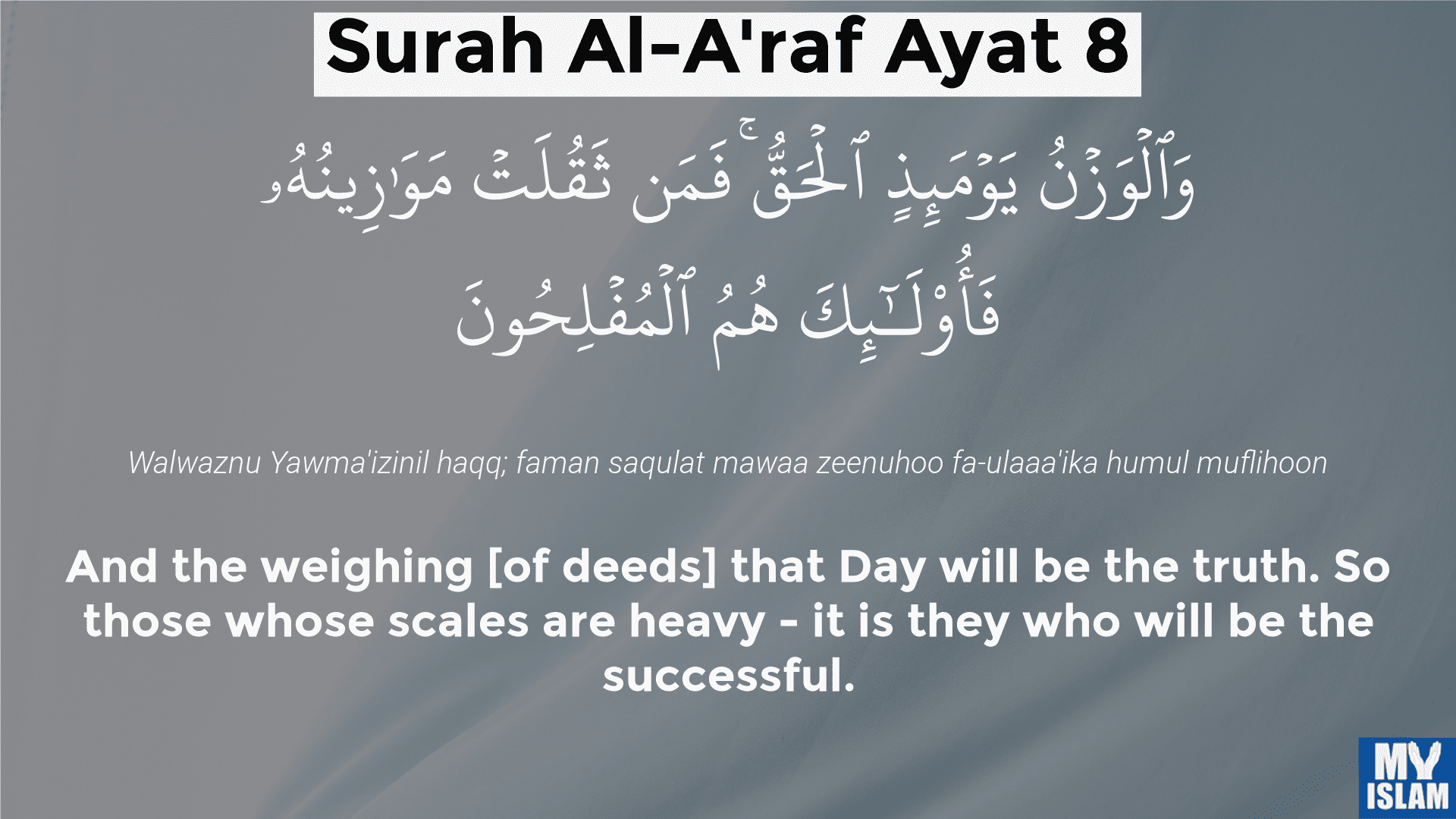Surah Al-A’raf Ayat 6 in Arabic Text
English Translation
Here you can read various translations of verse 6
Then We will surely question those to whom [a message] was sent, and We will surely question the messengers.
Then shall we question those to whom Our message was sent and those by whom We sent it.
So We shall call to account those to whom Messengers were sent, and We shall call to account the Messengers (to see how dutifully they conveyed the Message, and how people responded to it).
Then surely, We shall question those (people) to whom it (the Book) was sent and verily, We shall question the Messengers.
Then verily We shall question those unto whom (Our message) hath been sent, and verily We shall question the messengers.
So, indeed We will definitely ask the ones to whom (a Message) was sent, and indeed we will definitely ask the Emissaries.
We shall certainly question those to whom messengers were sent–– and We shall question the messengers themselves––
پھر ہم ان لوگوں سے ضرور پوچھیں گے جن کے پاس پیغمبر بھیجے گئے تھے اور ہم پیغمبروں سے ضرور پوچھیں گے
Quran 7 Verse 6 Explanation
For those looking for commentary to help with the understanding of Surah Al-A’raf ayat 6, we’ve provided two Tafseer works below. The first is the tafseer of Abul Ala Maududi, the second is of Ibn Kathir.
Ala-Maududi
(7:6) So We shall call to account those to whom Messengers were sent,[6] and We shall call to account the Messengers (to see how dutifully they conveyed the Message, and how people responded to it).[7]
6. The words ‘call to account’ refers to the questioning people will be subjected to on the Day of Judgement. For it is the reckoning on the Day, of Judgement that really matters. Punishment dealt upon corrupt individuals and communities in this world does not constitute their true punishment. Punishment in this world is no more than what happens when a criminal, who has been strutting scot-free, is suddenly arrested. The arrest constitutes no more than depriving the criminal of the opportunity to perpetrate further crimes. The annals of history are filled with instances where corrupt nations have been punished, proving that man has not been granted absolute licence to go about doing whatever he pleases. Rather, there is a Power above all that allows man to act freely but only to a certain extent, no more. And when man exceeds those limits, that Power administers a series of warnings in order that he might heed the warnings and give up his wickedness. But when man fails totally to respond to such warnings, he is punished.
Anyone who considers the events of history, will conclude that the Lord of the universe must have certainly appointed a Day of Judgement in order to hold the wrong-doers to account for their actions and to punish them. That the Qur’an refers to the recurrent punishment of wicked nations as an argument in support of the establishment of the final judgement in the Hereafter is evidenced by the fact that the present (Surah Al-Aaraf, ayat 6) – opens with the word so’.
7. This shows that on the Day of Judgement Prophethood will be the main basis of reckoning. On the one hand, the Prophets will be questioned about the efforts they made to convey God’s Message to mankind. On the other hand, the people to whom the Prophets were sent will be questioned about their response to the message. The Qur’an is not explicit about how judgements will be made with regard to individuals and communities who did not receive God’s Message. It seems that God has left judgement – to borrow a contemporary judicial expression – reserved. However, with regard to individuals and communities who did receive God’s Message through the Prophets, the Qur’an states explicitly, that they will have no justification whatsoever to put forward a defence of their disbelief and denial, of their transgression and disobedience. They are doomed to be east into Hell in utter helplessness and dejection.
Ibn-Kathir
The tafsir of Surah Al-A’raf verse 6 by Ibn Kathir is unavailable here.
Please refer to Surah A’raf ayat 4 which provides the complete commentary from verse 4 through 7.
Quick navigation links






